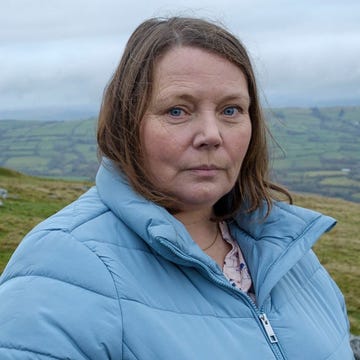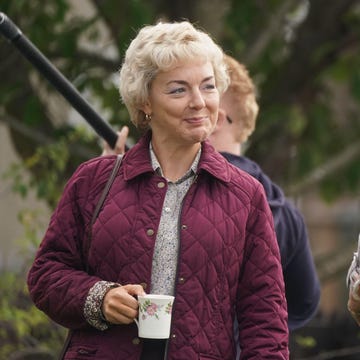When Dorothy says in The Wizard Of Oz ‘There’s no place like home’, she voices a yearning that resonates with many of us: a longing to return to the place where we feel safe and loved. But what happens when the place you call home changes, not just geographically but emotionally?
For many, our first experience of leaving home comes with our university years. I’ll never forget the sense of trepidation as my parents drove away from my student bedsit flat in Manchester. The city was intimidating for a girl raised among Yorkshire’s quiet rural villages. Even with my Athena posters Blue-tacked to the walls and photographs of school friends pinned to a cork board to connect my new life to my former, it would take time for that flat to feel like home.
Yet the end-of-term return to Yorkshire felt like an interruption to the independent life I’d formed and the place I’d first called home became a place I was restless to leave. But it would pull me back in the worst imaginable way.
Six months before my 23rd birthday, my mum was diagnosed with an aggressive form of cancer. Home, for a while, became the family accommodation at London’s Royal Marsden Hospital. When mum finished her treatment and returned home, I visited most weekends. I began to dread the drive across the Pennines. For too short a time, Macmillan nurses came and went until the bedroom where my mum had once tucked me in and kissed me goodnight became the place where my Dad told me she had died. Home would never be the same.
Shortly after mum’s death, home became Australia. At the time, I believed I was going on a great adventure. In reality, I was running away. Home was wherever I settled for a while: a mattress on a friend’s floor, a house with cockatoos in the garden, backpacker hostels, a boyfriend’s apartment. Australia restored me and almost became my permanent home. But not quite. I clicked my heels and returned to England.
Life took me back to London, where I built a successful career as a young professional among old friends and new until, aged 30, I left England for the last time to settle in Ireland with a man I’d fallen in love with. At first, even Ireland felt unfamiliar and strange, but a new job, new friends and then marriage and children, and eventually Irish citizenship, rooted me to this country of a hundred thousand welcomes. Ireland is home – the only permanent home I’ve known since leaving Yorkshire at 18. With my eldest son having recently left home to begin his new life at university, the cycle begins again, but this time I’m the one driving away.
And another cycle continues as I am pulled back, once again, to my Yorkshire home and my elderly father. That home is now a place of handrails and walking frames, and where carers come and go. It takes courage to make a new city or country your home, but it can take even greater courage to return to the home of your past and I feel a sense of unease as I make the regular trip from Dublin.
But as I pass homes of old friends, my school, the duck pond, I draw comfort from the familiar; grateful, in a way, to have this time here again. I see family and neighbours I haven’t seen for decades. I sleep in my childhood bedroom. A picture I drew for my mum in the last weeks of her life still stands beside the TV. My sister sends a gap-toothed smile from a photograph on the windowsill. So much is the same there, and yet it is all so different. I am different; a composite of the homes and experiences that have led me back to where it all began.
At its simplest, home is a place to close the door and put the kettle on. At its hardest, it is a place of painful memories. More than a location, it is a memory, a feeling, a place you might only know for a short while, or for a lifetime. Whatever and wherever it is, Dorothy was right: there’s no place like it.
Before Dorothy by Hazel Gaynor is out now














![©ITV from monumental television frauds sr1pictured: jodie whittaker as sam suranne jones as bert this photograph is (c) itv plc/ monumental television and can only be reproduced for editorial purposes directly in connection with the programme or event mentioned above, or itv plc. this photograph must not be manipulated [excluding basic cropping] in a manner which alters the visual appearance of the person photographed deemed detrimental or inappropriate by itv plc picture desk. this photograph must not be syndicated to any other company, publication or website, or permanently archived, without the express written permission of itv picture desk. full terms and conditions are available on the website www.itv.com/presscentre/itvpictures/termsfor further information please contact:michael.taiwo1@itv.com](https://hips.hearstapps.com/hmg-prod/images/frauds-sr1-first-look-03-6891d81c2d536.jpg?crop=0.428xw:0.643xh;0.0641xw,0.116xh&resize=360:*)